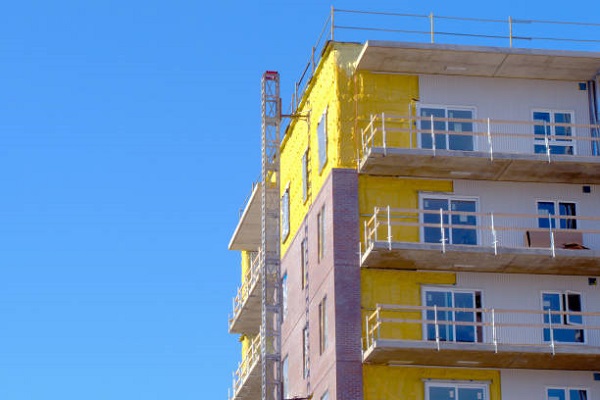Industrial buildings rely heavily on their facades for energy performance and durability. The insulation layer is the shield that protects against heat loss, moisture intrusion, and structural wear. However, even the best materials can fail if installation is not executed correctly. The process requires precision, adherence to technical guidelines, and skilled craftsmanship. Inadequate work can lead to long-term inefficiencies and costly repairs. Understanding why proper installation matters offers insight into the true value of insulation.
When Installation Shapes Building Longevity
Every industrial structure face year of environmental stress and changing weather conditions. Correct insulation placement ensures the building remains protected throughout its lifespan. Gaps, misalignments, or poorly sealed joints allow thermal bridges to develop quickly. These weaknesses compromise both energy performance and structural durability over time. Skilled installation prevents such vulnerabilities from appearing in the first place. The result is a longer-lasting and more resilient facade system.
The Energy Efficiency Connection
The main goal of facade insulation is to improve thermal regulation inside industrial facilities. When installation is precise, the insulation creates a continuous protective barrier. Any installation flaws create paths for heat transfer, raising energy consumption significantly. Correctly applied layers minimize these losses and enhance heating and cooling efficiency. This leads to reduced operational costs and lower environmental impact over the years. Proper installation directly turns insulation into an active energy-saving investment.
Avoiding Moisture and Structural Decay
Moisture is one of the most dangerous threats to any building facade. Poor installation leaves unsealed gaps where water can penetrate and accumulate. This can lead to mold growth, corrosion, and material breakdown inside the wall system. Properly fitted insulation resists water intrusion while allowing safe vapor movement outward. Such balance is crucial for maintaining healthy internal environments and strong structural integrity. For regions with variable climates, professional installation becomes even more critical.
Precision Matters for Fire Safety
Industrial buildings must meet strict safety regulations, including fire resistance requirements. Many insulation systems are designed with fire-retardant properties built into their composition. Incorrect installation may leave combustible gaps or expose vulnerable areas in the facade. This compromises the system’s ability to slow fire spread during an emergency. Skilled professionals follow exact specifications to ensure full protective coverage against such hazards. Safety compliance is achieved only when installation matches the design intent perfectly.
Local Expertise for Best Results
Every industrial site presents unique challenges in design, materials, and environmental exposure. Choosing installers familiar with regional climate patterns can significantly improve results. For example, professionals specializing in aislamiento fachadas industriales Valencia understand local weather demands deeply. They apply techniques that adapt to seasonal temperature shifts and humidity variations. This ensures the insulation performs at optimal efficiency throughout the year. Local expertise often translates into long-term savings and fewer maintenance issues.
Conclusion
Proper installation of industrial facade insulation is far more than a construction formality. It determines the building’s energy efficiency, safety, and resistance to environmental wear. Skilled workmanship ensures continuous protection and maximizes the material’s designed performance. Without precision, even premium insulation can fail to deliver expected results. Ultimately, the success of facade insulation lies in the hands of the installer’s expertise.

